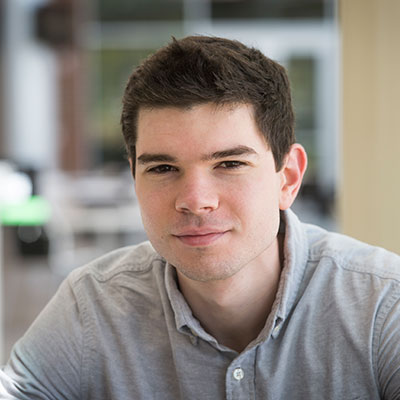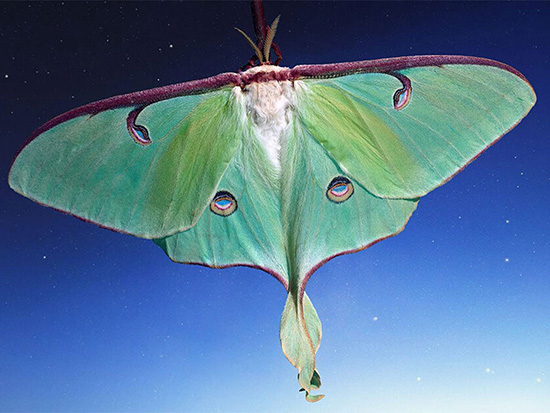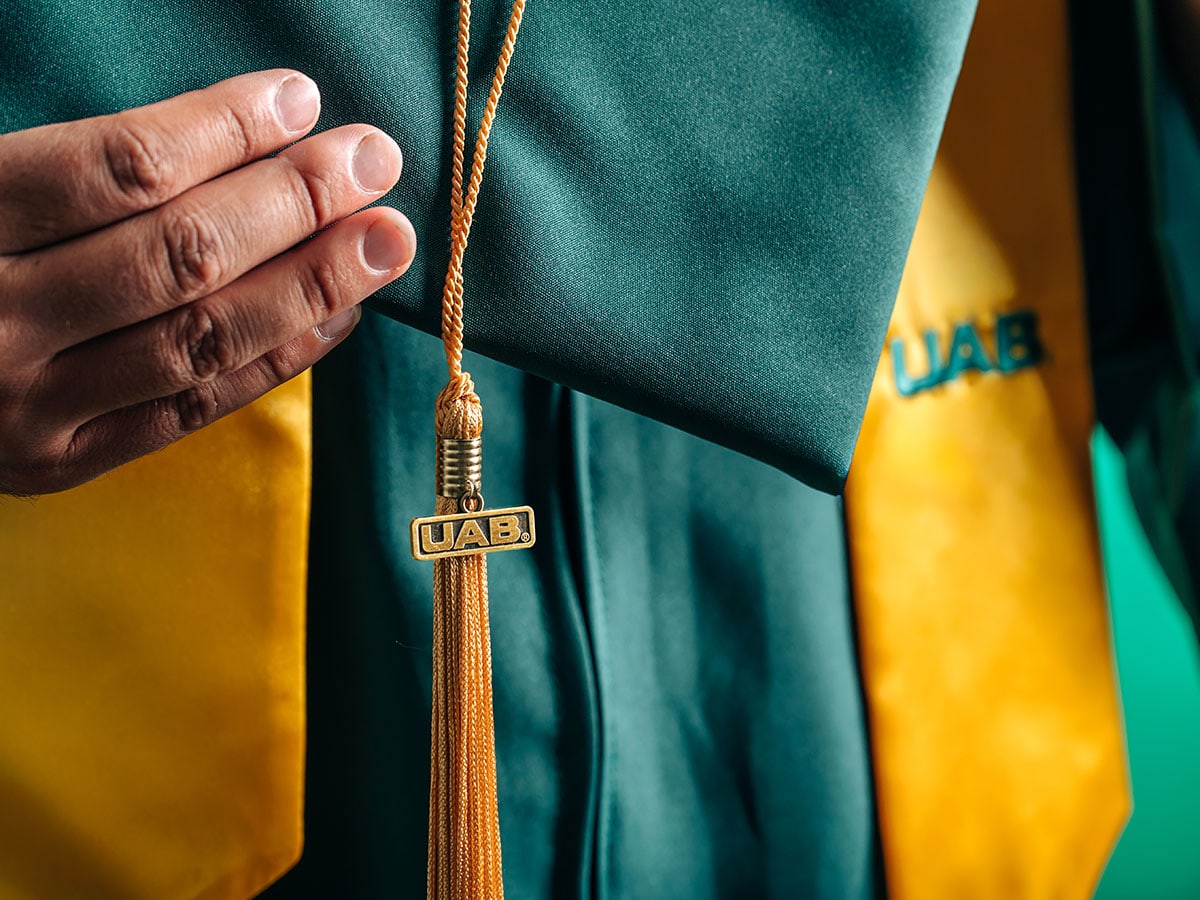Ben Boros, a senior majoring in the Undergraduate Neuroscience Program, writes about his experiences in the program and at UAB.
Unlike many other students, I entered UAB as a blank slate with the goal of pursuing whatever I thought I would enjoy. In high school, I was enticed by everything I studied: each science, math, literature — ultimately concluding that all were neat. However, I found that neuroscience seemed to be a convergence point for each STEM and arts field. I was captivated by the mind-brain conundrum: how the physical structure and function of the brain can generate an immaterial mind. I knew the sheer complexity of the brain would demand investigation from various fronts and perspectives, allowing me to explore this convergence point further. I decided to pursue neuroscience because I knew it would expose me to diverse fields and because it seemed pretty cool.
 Soon after entering UAB, I had the chance to meet several researchers through the Undergraduate Neuroscience Program (UNP) and the Science and Technology Honors Program (STHP). Through their networks, I met Dr. Jeremy Herskowitz in the Department of Neurology, whose work immediately interested me. Broadly, he studies cellular mechanisms underlying Alzheimer's disease and tests the structure-function relationship at a fundamental unit for learning — the connections between brain cells. Over the last few years, I've enjoyed the chance to examine how these connections are altered in disease progression and probe potential therapeutic interventions to address these. Along the way, I also explored how certain protein molecules can influence the morphology of brain cells. My efforts have so far culminated in a first author manuscript examining the relationship between the structure of these connections with cognitive function. With the support of Dr. Herskowitz and the UNP, I have been fortunate enough to present my work at regional or national conferences including at Society for Neuroscience in Washington D.C. Undoubtedly, my research experience at UAB has given me critical skills and valuable tangibles that will remain with me for years to come.
Soon after entering UAB, I had the chance to meet several researchers through the Undergraduate Neuroscience Program (UNP) and the Science and Technology Honors Program (STHP). Through their networks, I met Dr. Jeremy Herskowitz in the Department of Neurology, whose work immediately interested me. Broadly, he studies cellular mechanisms underlying Alzheimer's disease and tests the structure-function relationship at a fundamental unit for learning — the connections between brain cells. Over the last few years, I've enjoyed the chance to examine how these connections are altered in disease progression and probe potential therapeutic interventions to address these. Along the way, I also explored how certain protein molecules can influence the morphology of brain cells. My efforts have so far culminated in a first author manuscript examining the relationship between the structure of these connections with cognitive function. With the support of Dr. Herskowitz and the UNP, I have been fortunate enough to present my work at regional or national conferences including at Society for Neuroscience in Washington D.C. Undoubtedly, my research experience at UAB has given me critical skills and valuable tangibles that will remain with me for years to come.
Outside the lab and coursework, I found myself drawn to a number of initiatives at UAB and in the community. With the support of the Honors College and its faculty leadership, I was able to help build the UAB community as founder and inaugural Vice President of the Honors College Leadership Council (HCLC). Soon after entering UAB, I recognized an opportunity for unity within the student community, and I channeled this vision of collaboration and cohesiveness into the HCLC. Wanting to share my enthusiasm for neuroscience, I've had many chances, including with Alabama Brain Bee and Brain Awareness Week, to spread my excitement in the Birmingham community to younger elementary to high school students. These experiences have been formative in seeding an interest in teaching a next generation. Finally, through the Equal Access Birmingham free clinic, I was able to develop perspective on some of the challenges that many in Birmingham face and also give back to some of the underserved community. Overall, each experience was not only personally rewarding, but also formative to understanding how I wish to interact with my community.
My coursework, research, and community involvement have together expanded my amazement in the brain's complexity and function, but also revealed the devastation that those with disease face. Though I entered UAB with an unstructured and limited vision, the mentorship and guidance of those around me showed me how to expand my interests, formulate a goal, and execute my visions. For these, I relied on so many at UAB: the practical wisdom and personal support of Dr. Herskowitz, the direction and insight of Drs. Gavin and Wilson (UNP), and the unrelenting motivation and enthusiasm of Dr. Tucker (STHP). This fall, I will enter a MD-PhD program to receive training to investigate the complexity of the brain, to understand the mechanisms of disease, and to have a personal role in healing the suffering.
As I reflect on my experience at UAB, I am most thankful for the freedom and support I had in pursuing my initial goal: devoting my time and effort to those things that I found personally fulfilling.


